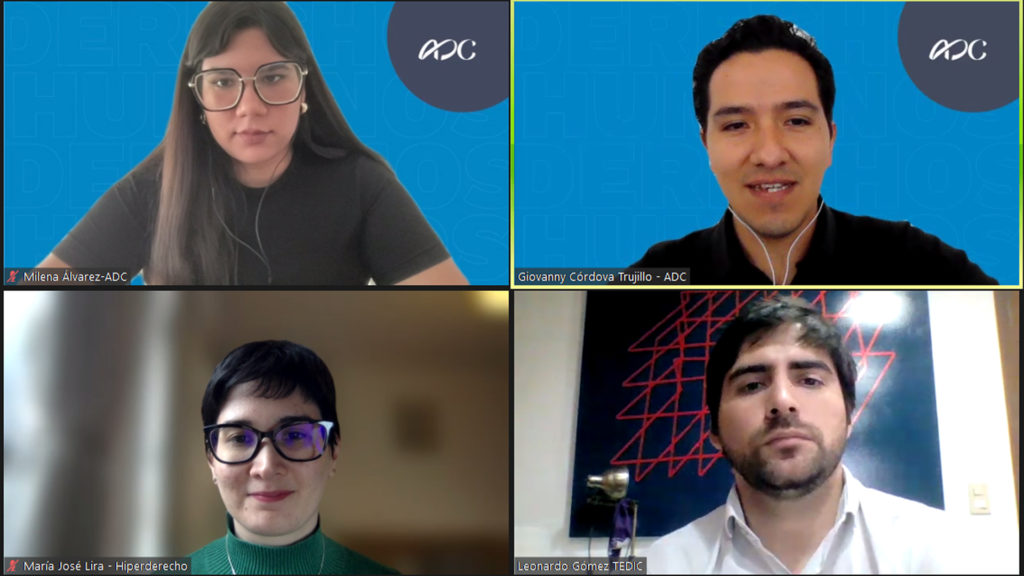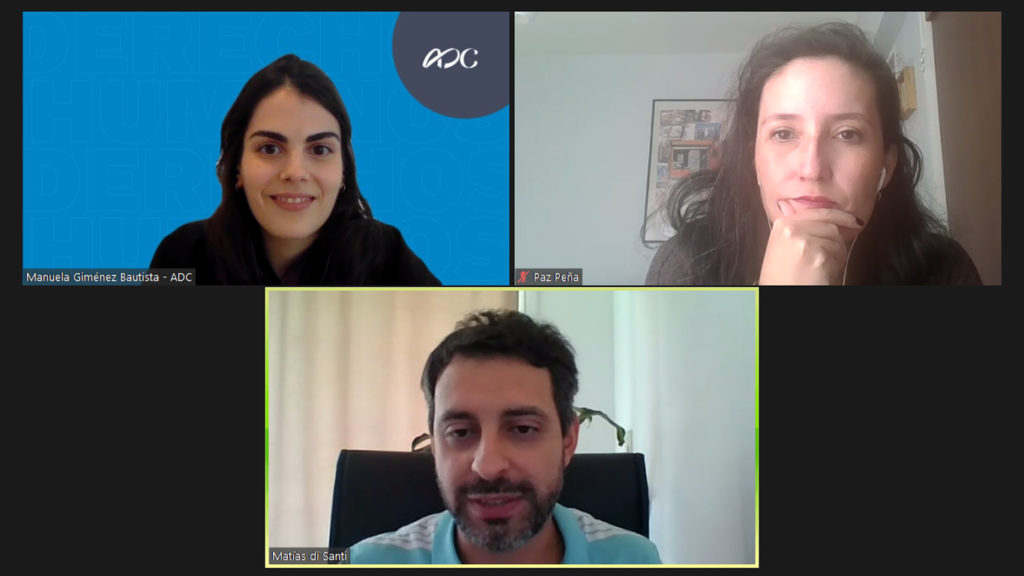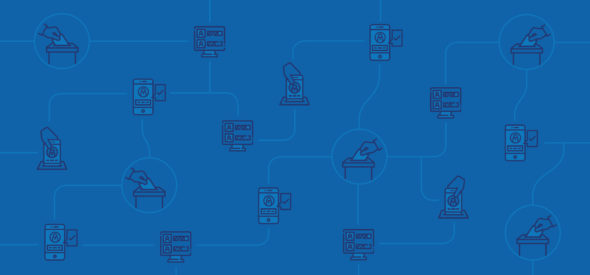“ADC in focus: Elections and technology” engages great attendance
With more than fifty people from all over the Americas, the Association for Civil Rights (ADC) held a superb virtual conference, where experts in different fields discussed the impact of social media on elections and the exercise of political citizenship.
The meeting was moderated by ADC project assistants Manuela Giménez Bautista, Milena Álvarez and Giovanny Córdova, and welcomed Gustavo Gómez (Observacom) Sabrina Oliveira de Almeida (Getulio Vargas Foundation), Vladimir Cortés (Article 19), Belén Roca (Derechos Digitales), María José Lira Morán (Hiperderecho), Leonardo Gómez (Tedic), Paz Peña (independent consultant) and Matías Di Santi (Chequeado) as participants.
The event took place on April 27 via Zoom, from 9 am to 4 pm, and included opening and closing round tables, as well as three thematic panels: Content moderation in social media, Disinformation practices in virtual contexts, and Election ad spending in social media.
The opening round table, which presented and launched the meeting, was integrated by the PubliElectoral team, followed by the first of the three thematic panels, Content Moderation in social media, with the participation of Gustavo Gómez (Observacom, Uruguay) and Sabrina Karlla Oliveira de Almeida (Getulio Vargas Foundation, Brazil).
Almeida, a political scientist, referred to the current debates in Brazil on the subject, pointing out that tech companies “make discretionary decisions when they should be clear and transparent as to their policies of content moderation.” In turn, the head of Observacom affirmed that “we are no longer discussing whether to regulate or not, but rather, the question is how. There is no simple answer to the problem. From Observacom, we believe that we could move forward an agenda in which the platforms moderate with total respect for user rights,”
In the second panel, Vladimir Cortés Roshdestvensky (Article 19, Mexico) and Belén Roca (Derechos Digitales, Chile) spoke on disinformation practices in virtual contexts, Roca mentioned the work done by PubliElectoral during the campaign for the Chilean national plebiscite. In this regard, she highlighted that “there was massive communication overload, which generated great confusion over the veracity of the information when it came to voting.” Cortés, on the other hand, stated that “we cannot overlook how the distortion of facts can be discreditable to candidates and journalists. So much disinformation leads to complete unawareness of what is true or not, a situation that is worsening and with no concrete solution in sight.”
The third round table was dedicated to election ad spending in social media and featured ADC project assistant Milena Álvarez, María José Lira Morán (Hiperderecho, Peru) and Leonardo Gómez (Tedic, Paraguay). All three shared the findings of reports published by their organizations: Álvarez referred to ADC’s activity within PubliElectoral and Gómez to the research carried out by Tedic on election advertising in Paraguay while advancing some preliminary data from #PubliElectoral in view of the 2023 general elections in that country.
Finally, at the closing table of this first edition of ADC in Focus, Matías Di Santi, head of the Media department of Chequeado, and independent consultant Paz Peña reviewed some of the topics addressed at the thematic panels. Di Santi shared a recent study done by his organization on media literacy and the fight against disinformation, while Peña warned on the dangers of techno-capitalism, a topic to which she has dedicated her recent book Technologies for a Planet in Flames. “The most worrying aspects, when it comes to disinformation and everything discussed in this event, are related to the power that big tech companies have on society and public opinion,” she concluded.


